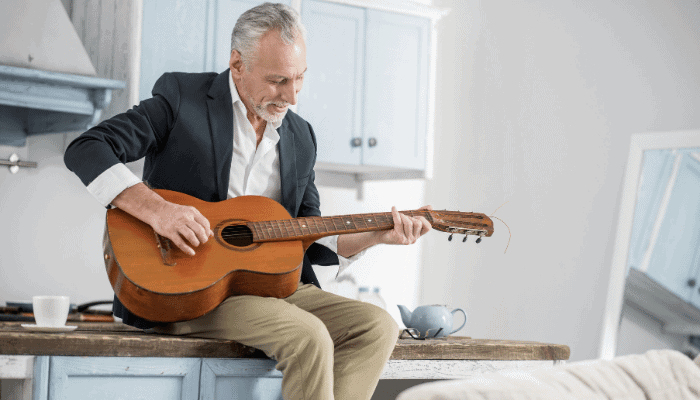By Steve Toll
In 1962 at the age of nine, I had the opportunity to see Louis Armstrong perform live at the Steel Pier in Atlantic City, New Jersey. I remember staring up at the bandstand taking in his performance. It was magical listening to his voice and the sounds that came out of his trumpet. I was truly mesmerized. Many years later, I have not forgotten one moment of that show and when I hear a Louis Armstrong song, I’m transported back to that concert.
Favorite songs trigger memories and those memories are often very complete. They include not only the song and the performer, but also how we were feeling at the time, the people we were with, places we have been and events that were happening.
This is especially helpful in caring for people living with dementia. Various research shows that the areas of the brain that store musical memories are the last to deteriorate. This explains why individuals who rarely speak may spontaneously sing when a familiar song is played.
Positive outlets for emotional expression are critical to maintaining quality of life for those living with dementia. Music is conducive to keeping strong social connections with others and helping to reduce agitation and anxiety.
When caring for a loved one with dementia, look for ways to bring music into the home, whether it’s playing a song from their past, watching a concert on TV, tuning into a live performance on a digital platform, which is ever more common today with the coronavirus pandemic, or simply humming a familiar tune.
The Alzheimer’s Association shares these tips when selecting music for a person with dementia:
- Identify music that’s familiar and enjoyable to the person.
- Choose a source of music that is not interrupted by commercials, which can cause confusion.
- Use music to set the mood you want. For example, a tranquil piece of music can help create a calm environment, while a faster paced song from someone’s childhood may boost spirits and evoke a happy memory.
- Encourage movement (clapping and dancing)
- Avoid sensory overload by making sure music isn’t too loud and there are not competing noises. Pay attention to your loved one’s response and reaction to the music.
Music is powerful, it’s therapeutic, it brings people together and it can be a lifeline when caring for someone with dementia.
Steve Toll is the Care Enhancement Specialist for ComForCare Franchise System, Inc. He is a Certified Dementia Care Specialist and has been a keynote speaker, trainer and presenter for the National Alzheimer’s Association, as well as for agencies and companies throughout the United States.
Senior Outlook Today is your go-to source for information, inspiration, and connection as you navigate the later years of life. Our team of experts and writers is dedicated to providing relevant and engaging content for seniors, covering topics such as health and wellness, finances, technology and travel.






